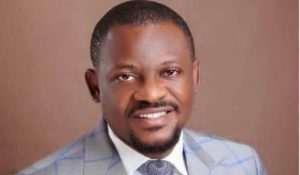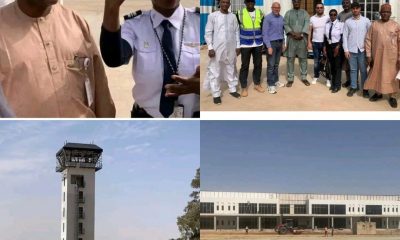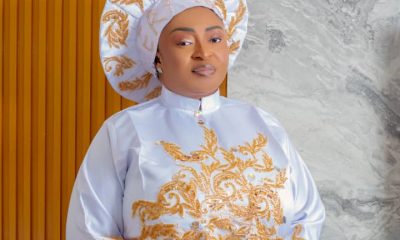society
Former Rivers Speaker Amaewhule, Colleagues Will Deny Tinubu Soon
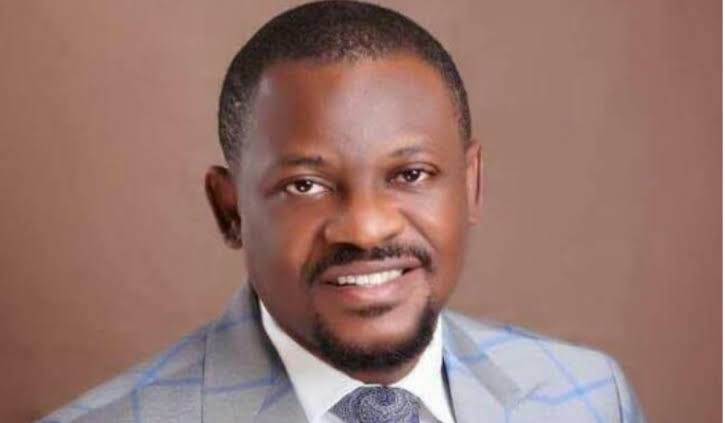
Former Rivers Speaker Amaewhule, Colleagues Will Deny Tinubu Soon
The Concerned Members of the All Progressives Congress (CMAPC) has warned the ruling party to deal with Hon. Martins Amaewhule and his 26 colleagues in the Rivers State Assembly with kids’ gloves over their denouncement of the party.
Recall that the lawmakers had publicly announced their defection from the People’s Democratic Party to the APC in December, only to deny any affiliation with the party when their mandate was being threatened.
In a statement signed by its President, Comrade Ezegwu Thomas, the group described Amaewhule and the others as political destitutes with no allegiance to any political organization.
Thomas said the same way they denounced membership of the APC, they would do the same to
President Bola Tinubu and urged party faithful to exercise extreme caution in dealing with them.
“We are compelled to address a pressing matter that threatens the very fabric of our great party. Recent events have led us to sound a note of caution and vigilance to all loyal members of our party,” the statement said.
“As you may be aware, some members of the Rivers State House of Assembly publicly defected from the PDP to our esteemed party. However, in a bizarre twist, they have since denied any affiliation with our party, leaving us with no choice but to categorize them as political destitutes with no allegiance to any political organization.
“We view this development with great concern and warn our members to exercise extreme caution in dealing with these individuals. Their antecedents show a pattern of political opportunism, and we fear that their presence within our ranks could spell doom for our party’s unity and progress.
“We caution our members that these individuals, who have no qualms about denying their own party affiliation, will not hesitate to do the same to our party and even our esteemed President, Bola Ahmed Tinubu, when it suits their interests. We must not let our guard down and allow such fair-weather politicians to infiltrate our ranks.
“Their actions are a stark reminder of the dangers of accommodating individuals without principle or loyalty. We must remain vigilant and ensure that our party remains a sanctuary for true progressives, not a haven for political chameleons.
“We urge our members to be cautious in their dealings with these individuals and to prioritize the interests of our party above all else. Let us remain united and focused on our mission to build a better Nigeria for all.”
society
NCAT Delegation Tours Gusau International Airport, Commends Governor Lawal, Eyes Strategic Partnership for Aviation Training
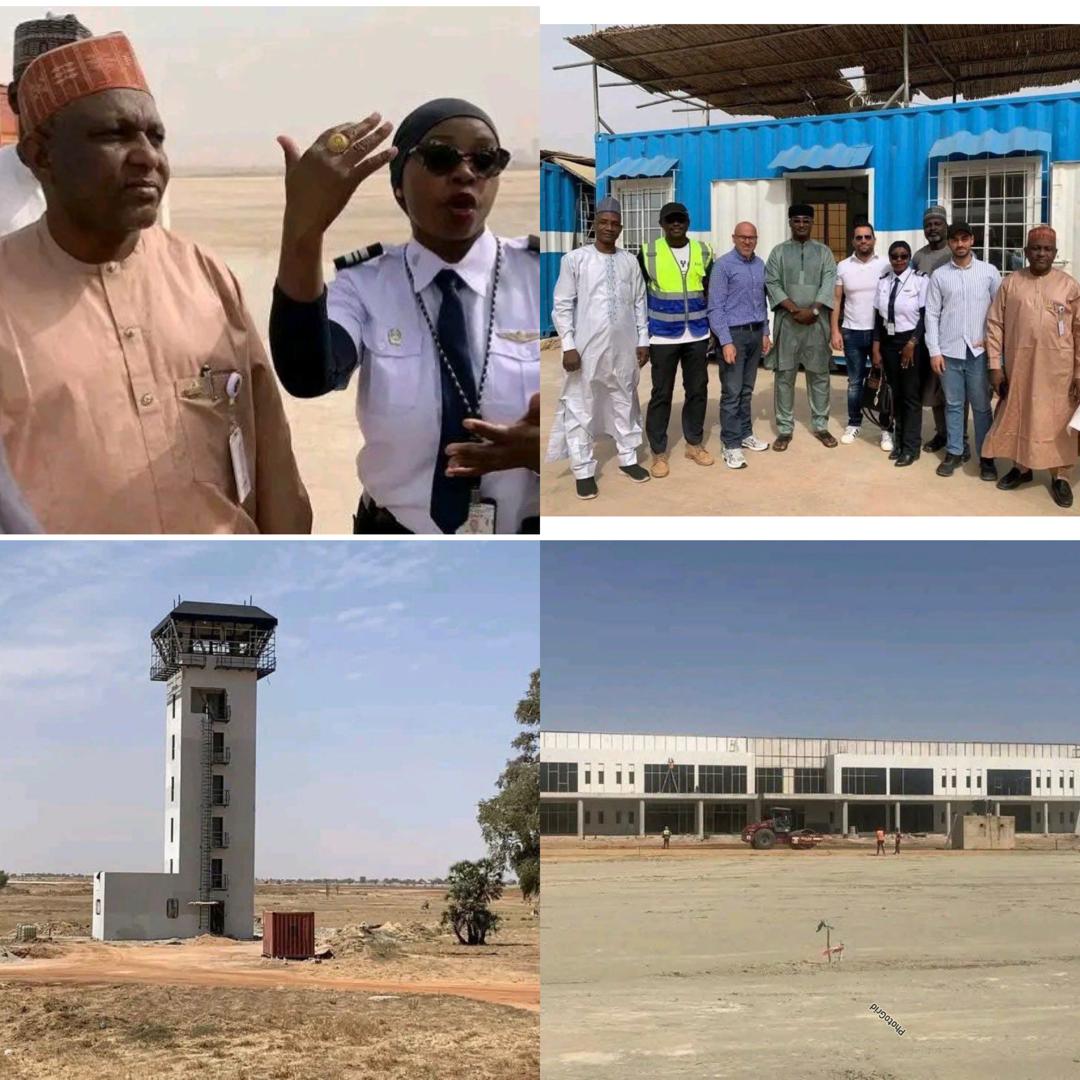
NCAT Delegation Tours Gusau International Airport, Commends Governor Lawal, Eyes Strategic Partnership for Aviation Training
In a move signaling a major push for inter-agency cooperation within Nigeria’s aviation sector, a high-level delegation from the Nigerian College of Aviation Technology (NCAT), Zaria, has undertaken an official working visit to Gusau International Airport currently under construction by the administration of Governor Dauda Lawal. The visit, aimed at a comprehensive assessment of the facility’s infrastructure and operational capabilities, is seen as a foundational step toward forging a strategic partnership to bolster aviation training and safety standards across the region.
The NCAT team, led by Nasir Muhammad Bungura, conducted an extensive tour of the airport premises. They were received and accompanied by the Permanent Secretary of the Zamfara State Ministry of Works and Infrastructure, Engr. Haruna Dikko Gusau, underscoring the state government’s keen interest in maximizing the airport’s potential.
During the meticulous inspection, the delegation evaluated the airport’s runway, terminal buildings, navigational aids, and safety apparatus. Following the tour, Mr. Bungura commended Governor Lawal for a job well done as he expressed profound satisfaction with the state of the facility, describing the infrastructure, operational protocols, and visible ongoing upgrade projects as both encouraging and highly promising.
“The standards we have observed here today are commendable and align strongly with international best practices,” Bungura stated. “Gusau International Airport possesses a robust foundation. Our visit was to assess how this facility can serve as a practical hub for our training programs, offering our students real-world exposure to a modern, functioning airport environment.”
The delegation highlighted the airport’s latent potential to serve as a critical node for specialized aviation training, particularly in areas of safety operations, air traffic control simulations, and aircraft handling. Such collaboration, they noted, would not only enhance the practical skills of NCAT cadets but also contribute to elevating the overall safety and efficiency metrics of Nigeria’s air transport system.
Engr. Haruna Dikko Gusau welcomed the NCAT delegation’s interest, reiterating the Zamfara State government under Governor Dauda Lawal is committed to developing the airport as a catalyst for economic growth and regional integration. “This visit is a testament to the growing strategic importance of Gusau International Airport,” Engr. Gusau remarked. “We are not just building infrastructure; we are creating a hub for opportunity. Partnering with a prestigious institution like NCAT will ensure this facility contributes meaningfully to human capital development and the advancement of Nigeria’s aviation industry.”
The visit marks a significant milestone for Gusau International Airport, transitioning its role from a regional transit point to a potential center of excellence for aviation education and a key partner in national aviation development. Both parties are expected to hold further discussions to formalize areas of collaboration, which could pave the way for NCAT to utilize the airport for specialized training exercises and curriculum development in the near future.
society
Ramadan: Adron Homes Felicitates Muslims, Preaches Hope and Unity

Ramadan: Adron Homes Felicitates Muslims, Preaches Hope and Unity
Adron Homes & Properties Limited has congratulated Muslim faithful on the commencement of the holy month of Ramadan, urging Nigerians to embrace the virtues of sacrifice, discipline, and compassion that define the season.
In a statement made available to journalists, the company described Ramadan as a period of deep reflection, spiritual renewal, and strengthened devotion to faith and humanity.
According to the management, the holy month represents values that align with the organisation’s commitment to integrity, resilience, and community development.
“Ramadan is a time that teaches patience, generosity, and selflessness. As our Muslim customers and partners begin the fast, we pray that their sacrifices are accepted and that the season brings peace, joy, and renewed hope to their homes and the nation at large,” the statement read.
The firm reaffirmed its dedication to providing affordable and accessible housing solutions to Nigerians, noting that building homes goes beyond structures to creating environments where families can thrive.
Adron Homes further urged citizens to use the period to pray for national unity, economic stability, and sustainable growth.
It wished all Muslim faithful a spiritually fulfilling Ramadan.
Ramadan Mubarak.
society
Underfunding National Security: Envelope Budgeting Fails Nigeria’s Defence By George Omagbemi Sylvester

Underfunding National Security: Envelope Budgeting Fails Nigeria’s Defence
By George Omagbemi Sylvester | Published by saharaweeklyng.com
“Fiscal Rigidity in a Time of Crisis: Lawmakers Say Fixed Budget Ceilings Are Crippling Nigeria’s Fight Against Insurgency, Banditry, and Organized Crime.”
Nigeria’s legislature has issued a stark warning: the envelope budgeting system; a fiscal model that caps spending for ministries, departments, and agencies (MDAs) is inadequate to meet the country’s escalating security challenges. Lawmakers and budget analysts argue that rigid fiscal ceilings are undermining the nation’s ability to confront insurgency, banditry, kidnapping, separatist violence, oil theft and maritime insecurity.
The warning emerged during the 2026 budget defence session for the Office of the National Security Adviser (ONSA) at the National Assembly in Abuja. Senator Yahaya Abdullahi (APC‑Kebbi North), chairman of the Senate Committee on National Security and Intelligence, decried the envelope system, noting that security agencies “have been subject to the vagaries of the envelope system rather than to genuine needs and requirements.” The committee highlighted non-release or partial release of capital funds from previous budgets, which has hindered procurement, intelligence and operational capacity.
Nigeria faces a multi‑front security crisis: persistent insurgency in the North‑East, banditry and kidnappings across the North‑West and North‑Central, separatist tensions in the South‑East, and piracy affecting Niger Delta oil production. Despite declarations of a national security emergency by President Bola Tinubu, lawmakers point to a “disconnect” between rhetoric and the actual fiscal support for agencies tasked with enforcement.
Experts warn that security operations demand flexibility and rapid resource allocation. Dr. Amina Bello, a public finance specialist, said: “A static budget in a dynamic threat environment is like sending firefighters with water jugs to a forest fire. You need flexibility, not fixed ceilings, to adapt to unforeseen developments.”
The Permanent Secretary of Special Services at ONSA, Mohammed Sanusi, detailed operational consequences: irregular overhead releases, unfulfilled capital appropriations, and constrained foreign service funds. These fiscal constraints have weakened intelligence and covert units, hampering surveillance, cyber‑security, counter‑terrorism and intelligence sharing.
Delayed capital releases have stalled critical projects, including infrastructure upgrades and surveillance systems. Professor Kolawole Adeyemi, a governance expert, emphasized that “budgeting for security must allow for rapid reallocation in response to threats that move faster than political cycles. Envelope budgeting lacks this essential flexibility.”
While the National Assembly advocates fiscal discipline, lawmakers stress that security funding requires strategic responsiveness. Speaker Abbas Ibrahim underscored that security deserves “prominent and sustained attention” in the 2026 budget, balancing oversight with operational needs.
In response, the Senate committee plans to pursue reforms, including collaboration with the executive to restructure funding, explore supplementary budgets and ensure predictable and sufficient resources for security agencies. Experts warn that without reform, criminal networks will exploit these gaps, eroding public trust.
As one policy analyst summarized: “A nation declares a security emergency; but if its budget does not follow with real resources and oversight, the emergency remains rhetorical.” Nigeria’s debate over envelope budgeting is more than an accounting dispute; it is a contest over the nation’s security priorities and its commitment to safeguarding citizens.
-

 celebrity radar - gossips6 months ago
celebrity radar - gossips6 months agoWhy Babangida’s Hilltop Home Became Nigeria’s Political “Mecca”
-

 society6 months ago
society6 months agoPower is a Loan, Not a Possession: The Sacred Duty of Planting People
-

 society5 months ago
society5 months agoReligion: Africa’s Oldest Weapon of Enslavement and the Forgotten Truth
-

 news6 months ago
news6 months agoTHE APPOINTMENT OF WASIU AYINDE BY THE FEDERAL GOVERNMENT AS AN AMBASSADOR SOUNDS EMBARRASSING

